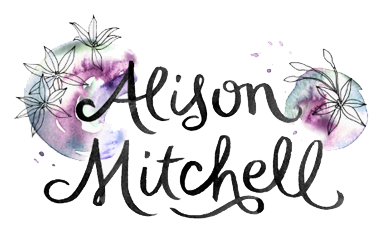Medications and your Microbes
I find that more and more people are aware of the importance of a balanced gut microbiome these days. The good bugs in your gut influence things like your immune system, hormone detoxification, metabolism, nutrient absorption, mood, skin health, levels of inflammation, reaction to food, oxidative stress, and more.
But did you know that antibiotics aren’t the only medication that can affect the bacteria in your gut, and in fact aren’t the biggest culprit for upsetting the balance.
I have gone knees deep in a research paper to find for you what medications will influence your very important microbiome. There are several commonly used medications which will potentially have a negative impact.
The main ones that were found to have an impact are:
- Proton pump inhibitors (PPIs) were one of the most notable drugs that influenced the bacteria, influencing multiple pathways, especially increasing the Streptococcus parasanguinis bacteria and affecting many pathways of bacteria’s ability to help our digestion of carbohydrates and fat
- Metformin seems to correlate with an increase of Escherichia coli, but also appeared to show an increase in the metabolic function of the microbiome, which may contribute to its effect.
- Antibiotics decreased overall Bifidobacterium levels
- Laxatives also affected multiple bacteria but were correlated with higher levels of Alistipes and Bacteroides bacteria groups and a decrease in bacteria that digest starches
And to a lesser degree:
- SSRI antidepressants
- Oral steroids increased Methanobrevibacter smithii in those with inflammatory bowel disease. This is a bacteria which influences metabolism which could potentially explain the weight gain frequently observed in oral steroid users.
- Anti-androgen oral contraceptives
- Vitamin D and calcium supplements
- Levothyroxine use was associated with an increase of Actinomyces group
The analysis explored a multiple of different papers which examined the different microbiome associated with different medication use and found these patterns. In many instances it was thought that the microbiome changes are a result of the medications, however it is possible that when certain over growth or undergrowth of certain bacteria was present that this could be responsible for the condition that prompted that medications prescription in the first place. Given the majority of the conditions included things like constipation, reflux, inflammation and mood disorders, it makes sense as these conditions can be affected by an imbalance in your gut bacteria.

Overview of the number of associated microbial features.
Reducing the damage
While some of these correlations may not be the fault of the medication but just a reflection of the nature of the disease, it is still notable that many medications to disrupt our microbiome. In some instances, there are important reasons for taking medications, in which case you need to take steps to ensure you’re supporting your gut microbiome.
Feeding your good bacteria is one of the most important steps, and this is achieved by eating foods rich in prebiotics. Plant foods are the most notable source of this, and the bigger variety you can have, the better.
Including fermented food such as saurkraut, kimchi, kefir and kombucha and yoghurts can introduce some bacteria, but it isn’t always guaranteed that they will bring the type of bacteria you need to replace. If you tolerate these foods (people with histamine intolerance or SIBO may find them problematic) then it’s certainly beneficial to include them.
Probiotic supplementation can be very valuable, however the important thing to remember is that you need to choose a strain of probiotics that meets your aims.
Nutrients that support gut health lining include glutamine, n-acetyl-glucosamine, lysine, glycine and proline.
In some cases, it may be worthwhile discussing with your health practitioner whether there are alternatives to these medications. While natural medicines will not be as powerful as conventional medicines, in some conditions they can provide a very satisfying effect, reducing the need for medications.

Photo by Adam Nieścioruk on Unsplash
Herbs for the Gut
Herbal medicines can soothe the digestive system beautifully, and for conditions such as GORD (reflux) they can reduce the requirements for these medications.
For reflux: consider herbs such as Marshmallow root, Ribwort, Meadowsweet, Licorice (avoid if you have high blood pressure) and Dandelion root.
For reducing inflammation in the gut: A tablet containing herbs such as Boswellia and Turmeric can be particularly beneficial.
For sluggish bowels: a regular brew of Dandelion root, Ginger, Licorice, Yellow Dock and Cinnamon can help to get things moving.
References
Vich Vila A, Collij V, Sanna S, Sinha T, Imhann F, Bourgonje AR, Mujagic Z, Jonkers DMAE, Masclee AAM, Fu J, Kurilshikov A, Wijmenga C, Zhernakova A, Weersma RK. Impact of commonly used drugs on the composition and metabolic function of the gut microbiota. Nat Commun. 2020 Jan 17;11(1):362. doi: 10.1038/s41467-019-14177-z. PMID: 31953381










